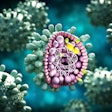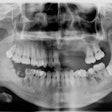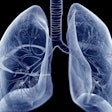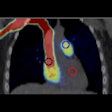Two physicians in Mississippi recently enrolled the first participant in a global study of a new treatment for head and neck cancer.
The clinical trial is for Multikine, a mixture of biologically active, natural cytokines that simulate the body's healthy immune system response. Julian Hill, MD, a physician at Hematology and Oncology Associates at BridgePoint, and Mont Berry, MD, of Ear, Nose, and Throat Physicians of North Mississippi, are conducting the study. Both are on the medical staff at North Mississippi Medical Center.
Multikine is the flagship immunotherapy product from CEL-SCI, developed as a first-line standard of care in the treatment of head and neck cancer.
Interleukin-2, one of the substances in Multikine, was discovered more than 30 years ago. It is produced by the immune system in response to trauma, malignancy, and infection. It has anticancer properties and was originally tested by the National Cancer Institute (NCI) in kidney cancer. However, the doses necessary to fight kidney cancer were so high that it became toxic to the body, according to Dr. Hill.
In this study, Multikine will be injected around tumors "since they are easily accessible," Dr. Hill said. In addition, because it is injected around the tumor bed, "the doses can be small enough that they are not toxic," he said.
Multikine will be administered around the tumor and in the area of the draining lymph nodes for five days a week, for three weeks, prior to beginning standard-of-care therapy.
Initial studies have shown a 12% improvement in the cure rate (as determined by pathology), Dr. Hill noted.
North Mississippi Medical Center is one of several centers in the U.S. participating in the study. Other participating clinical centers are located in Canada, Europe, Taiwan, Israel, and India. There are about 48 centers globally distributed, and 880 participants will be enrolled in the trial.
If Multikine proves to be beneficial, the study will have established a new standard of care for newly diagnosed head and neck cancer patients, meaning that every newly diagnosed patient with advanced primary disease would be expected to receive Multikine and reimbursement would be customary, the researchers noted.
This study is also the first phase III trial in the world in which immunotherapy is given to patients before receiving conventional treatment. This is significant because conventional therapy weakens the immune system and Multikine works by activating the intact immune system before the ravages of conventional therapy, according to Dr. Hill and colleagues.
Study participants will be followed three years. A central, multinational committee will monitor the data throughout the course of the study.

















